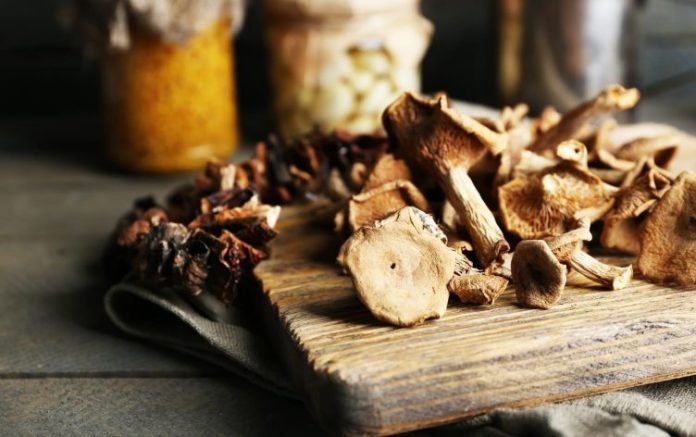
Everyone loves to predict trends for the new year, including what we’ll be eating in restaurants and buying at grocery stores. But like many fads, just because things become popular doesn’t always mean you should hop on board.
Here, registered dieticians share their thoughts on six food trends for 2019 (as forecasted by the Sterling-Rice Group and New Hope Network).

Whereas children of the ’90s grew up with fat-free everything, today butter, ghee and sustainably sourced palm and coconut oil are viewed more favorably. “Fat equals flavor, and it’s satiating. Plus, there is growing research around fat, and the trends tend to follow the research,” explains Jessie Shafer, RD, content director at New Hope Network. “Now we recognize that not all saturated fats are equal and that different fatty acids have different effects on our health and metabolism.”
DO DIETITIANS APPROVE?
Both Shafer and Cynthia Sass, RD, a New York City- and Los Angeles-based performance nutritionist and certified specialist in sports dietetics recommend choosing unsaturated fats such as avocado, olive oil, nuts and nut butters, because studies link these fats to heart protection. Just make sure to keep portion size in mind.

The number of plant-based milks, cheeses, yogurts and meats on the market continues to grow for a few reasons. Some choose these options because of animal welfare, some because of the environment and some for health reasons. “And more than ever we are experiencing really delicious plant-based alternatives that are convincing,” Shafer says.
DO DIETITIANS APPROVE?
“I generally love this trend,” says Shafer. “I’m not a fan of highly processed faux meats made from soy, but I’m a huge fan of plant milks, yogurt, cheese and meat alternatives made from pulses, including pea protein, which is not a common allergen,” Sass says. Try a few and see what you like.

We’re not talking about psychotropics, but rather mushrooms used in Chinese medicine such as cordyceps, reishi and lion’s mane. These are now added to other foods, such as granola bars, and used to make coffee and tea. “There is a strong interest in food as medicine, and research shows that mushrooms offer medicinal benefits,” Sass explains. They’re a great source of B vitamins and selenium, an antioxidant that helps boost the immune system.
DO DIETITIANS APPROVE?
Before trying it, Sass recommends talking to a qualified health care provider who knows your personal health history and is aware of any potential interactions with other herbs, supplements or medications you may be taking.

We know more today about how important sleep is to overall health. That’s why new beverages made with ingredients such as valerian root, passionflower and melatonin are touted as “an antidote to modern living,” Shafer says. “People are more stressed out and getting less sleep than ever so companies want to capitalize on this.”
DO DIETITIANS APPROVE?
Before you turn to a drink, look at your other behaviors. Things like exposure to blue light before bed, too much caffeine late in the day, stress and poor nutrition can negatively impact your ability to fall and stay asleep. “These drinks probably won’t hurt you but they won’t be a magic pill either,” says Sass. It’s also a good idea to speak with a doctor or dietitian before trying them.

Nootropics including caffeine, L-theanine, adaptogens and herbs are available in supplements, food and drinks, all promising to provide clarity, enhance memory and improve performance. “Everyone wants that competitive edge and boosting mental performance can improve nearly every area of your life, from work to interpersonal relationships,” Sass says.
DO DIETITIANS APPROVE?
There is some compelling research on certain nootropics such as ginkgo biloba, ginseng and the combination of L-theanine and caffeine, Shafer says. “But we need more research because it’s pretty controversial about which of these nutrients pass the blood-brain barrier.” There may also be side effects or interactions of taking nootropics, so talk to a qualified, unbiased health professional, Sass adds.

Collagen — a protein in our skin, bones and muscles — has been popular in beauty products for years. Now you can buy it as fairly tasteless protein powder to add to coffee or smoothies. Some research suggests consuming collagen may improve skin elasticity. “Our body’s natural production of collagen declines with age, and people chase after that forever-young look,” Shafer says.
DO DIETITIANS APPROVE?
If you consume foods such as chicken with the bone in, oysters and brightly colored produce such as bell peppers and citrus, you can boost collagen production naturally, Shafer says. But it’s also important to note collagen may not do anything for you; more research is needed. If you do decide to try it, look for high-quality collagen from organic, grass-fed beef or wild fish rather than in powder form.









